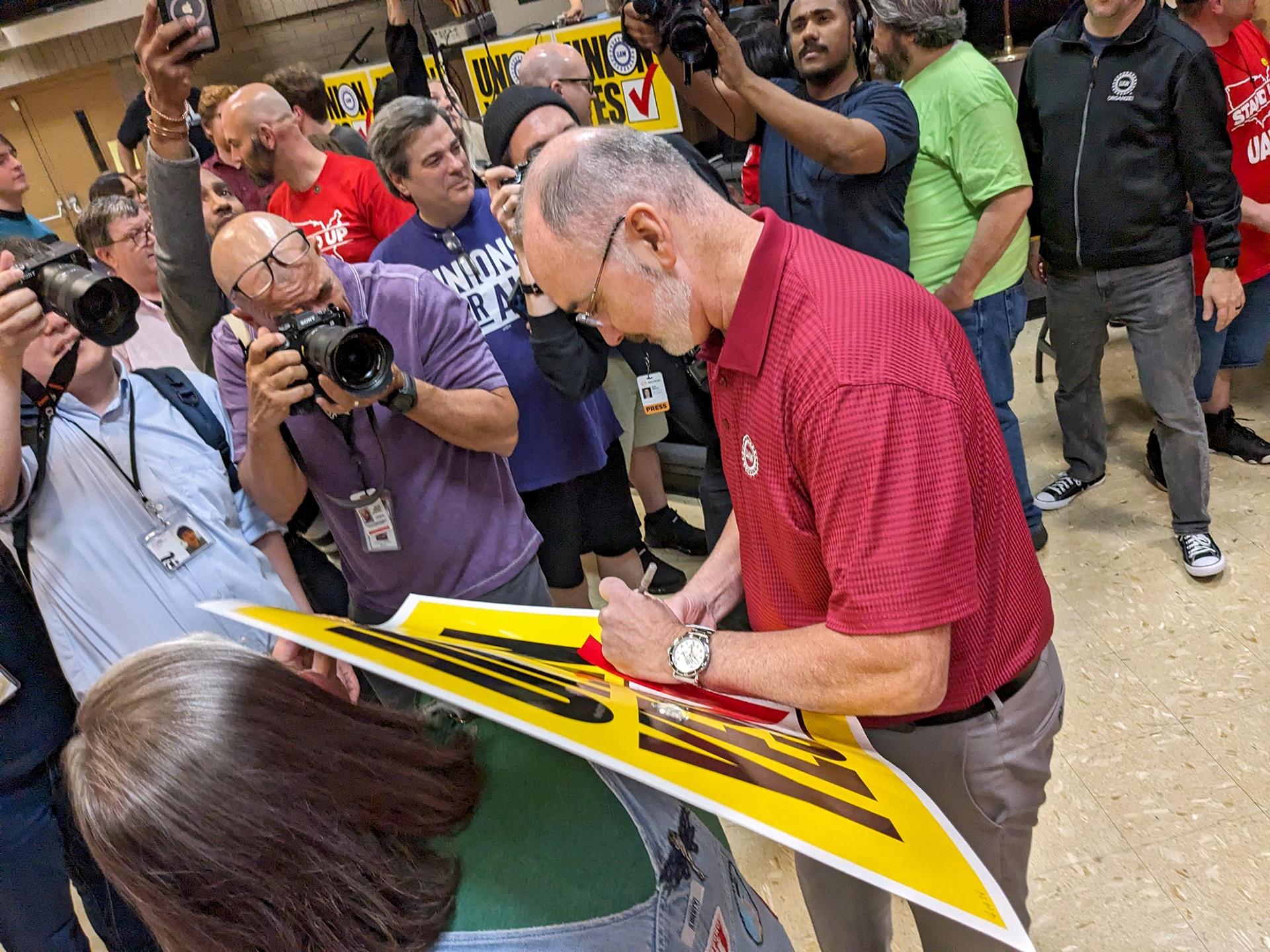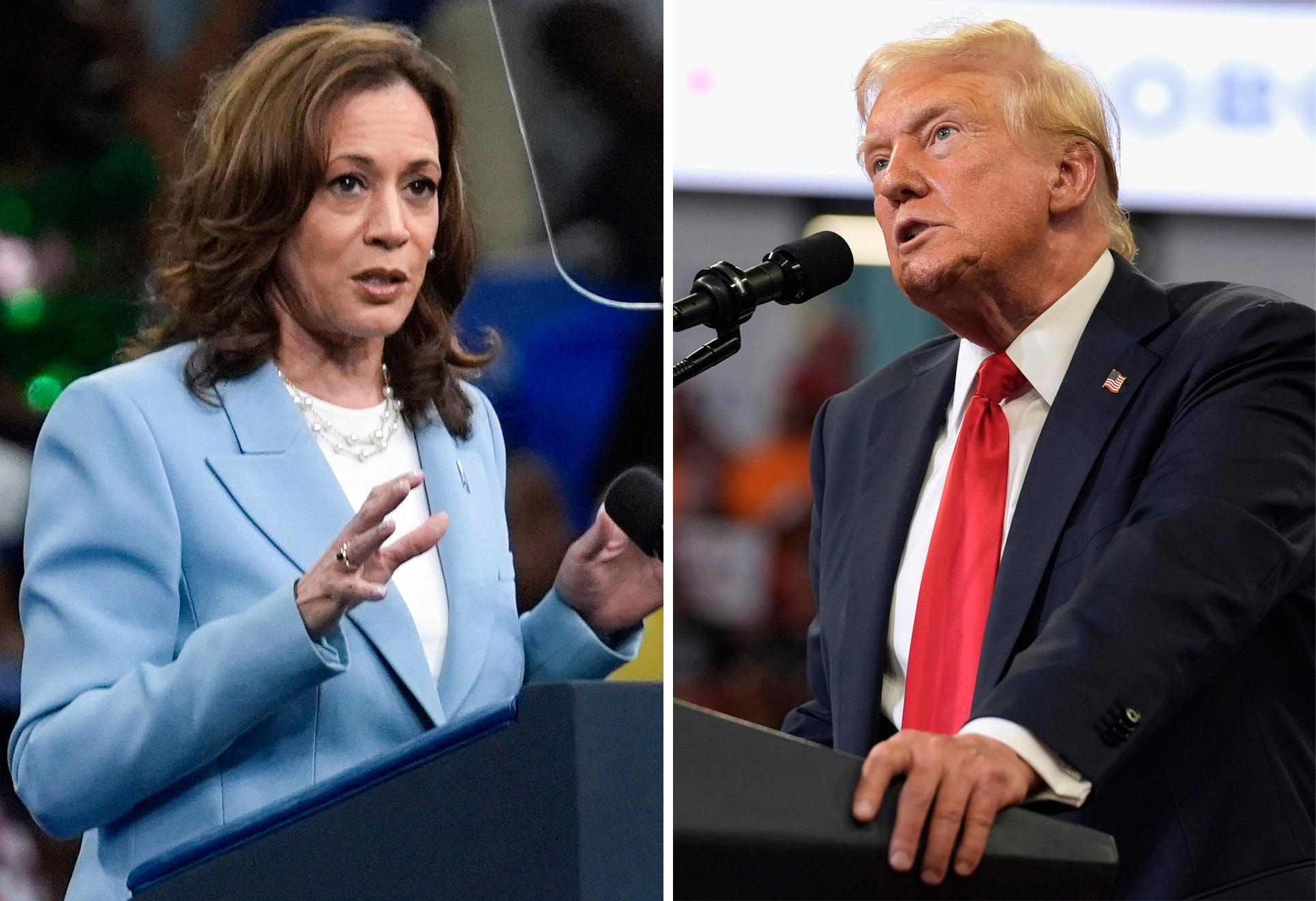Pro-union workers at a Nissan plant in Canton, Mississippi, are once again considering launching a union campaign.
Nissan workers in Mississippi consider another union campaign: VW 'proved it can be done'


Pro-union workers at a Nissan plant in Canton, Mississippi, are once again considering launching a union campaign.

Gulf States Newsroom
Nissan workers in Mississippi consider another union campaign: VW 'proved it can be done'
This comes after a Spring of success and failure for the United Auto Workers, which aimed to unionize the South after targeted strikes last Fall led to record contracts for its members with the Big Three American automakers. The unionization of a Volkswagen plant in Chattanooga, Tennessee, in April further encouraged the Nissan workers.
They remain cautious about their prospects, though, especially after Mercedes-Benz plant workers in Vance, Alabama, voted against unionizing in May — a reminder of how difficult it can be to win in the South. In the aftermath of that loss, a campaign to organize a Montgomery, Alabama, Hyundai plant has lost momentum.
The mixed results from other Southern campaigns aren’t the only factor in the Nissan workers’ decision. There’s also the industry’s rocky pivot to electric vehicles, the question of who will sit in the Oval Office next year and the sting from their failed union election seven years ago this August.
While the Nissan election may have happened in 2017, organizing at the plant started in the early 2000s.
A handful of workers recruited their colleagues and learned about what it would take to organize a workplace at a UAW office nearby — including lessons from Jaz Brisack, who eventually founded Starbucks Workers United.
Members of that core group of Nissan employees take some credit for the current labor movement's successful campaigns at workplaces like Starbucks and Volkswagen.
“We were the forefathers of everything that came to be,” said Rahmeel Nash, a paint body technician at Nissan who has been at the plant for 21 years.
But when it came time for Nissan workers to vote in 2017, they rejected unionizing. The final tally wasn’t close — nearly two to one against it.
Nissan technician Morris Mock said one reason they lost was because of the UAW itself. The union was in the early days of a corruption scandal, one that eventually led to two presidents going to jail for embezzling.
Beyond that, there were deeply entrenched anti-union attitudes in the state. Even local pastors came to speak to workers, calling the company the savior of Mississippi, Mock said.
“When you have pastors and you’re changing the narrative of our religious culture here to put Nissan literally on top — that’s problematic,” Mock said.
Nash points to a simpler explanation for the union hate — many Southerners associate the word union with outsiders.
“It goes all the way back to the Civil War,” Nash said. “If you say union, then the union is coming down to ‘take over.’ This is the idea that is put out to people here… we want to keep the union out.”

Anti-union attitudes aren’t restricted to Mississippi, but spread across the South — which is what made the Tennessee Volkswagen plant unionizing so surprising.
“That was big time,” Nissan worker Ernest Whitfield said. “We just were hoping that we were going to be the ones to prove that back in 2017.”
The largest difference between the Nissan vote in 2017 and the latest out of Tennessee is that the Volkswagen election was its third. It often takes more than one vote for a union victory, and like the Starbucks campaign showed with its first win at Buffalo, success has a way of spreading.
Despite the Alabama Mercedes-Benz loss just a month later, that Volkswagen union win is enough to have these Nissan workers wondering if they should try next.
“Because Volkswagen proved that it can be done,” Whitfield said.

For the remaining core, pro-union Nissan workers, the big question they’re grappling with now is whether they should launch a new campaign before or after the 2024 presidential election.
The case for waiting is that they can shape their campaign based on who’s in the White House.
Vice President Kamala Harris currently chairs a White House task force meant to support unions and help workers organize. Former President Donald Trump, on the other hand, has been a frequent union critic who’s taken shots at the head of the UAW, Shawn Fain. In turn, Fain warns that Trump would send the labor movement into reverse.
Beyond their union attitudes, both candidates present a different future for the country’s auto industry. The Biden Administration has pushed for an American EV manufacturing boom, and Nissan said it’s invested about half a billion dollars in overhauling its Mississippi plant to build EVs.
Trump has warmed to EVs recently, in part due to an endorsement from Elon Musk. But the workers in Canton believe Trump represents the current status quo — or an even further entrenchment into a love of gas as he’s called for more U.S. oil production.
Both candidates would also hold significant sway over the National Labor Relations Board, which regulates union elections and labor laws, through appointments. Whether it’s Harris continuing the board’s current trend of being friendly to organized labor or Trump returning it to a union-critical stance, either one would change these workers' plans.
“You’re going to have to strategize different in organizing depending on who becomes president,” said Nissan worker Travis Parks.
This story was produced by the Gulf States Newsroom, a collaboration between Mississippi Public Broadcasting, WBHM in Alabama, WWNO and WRKF in Louisiana and NPR.